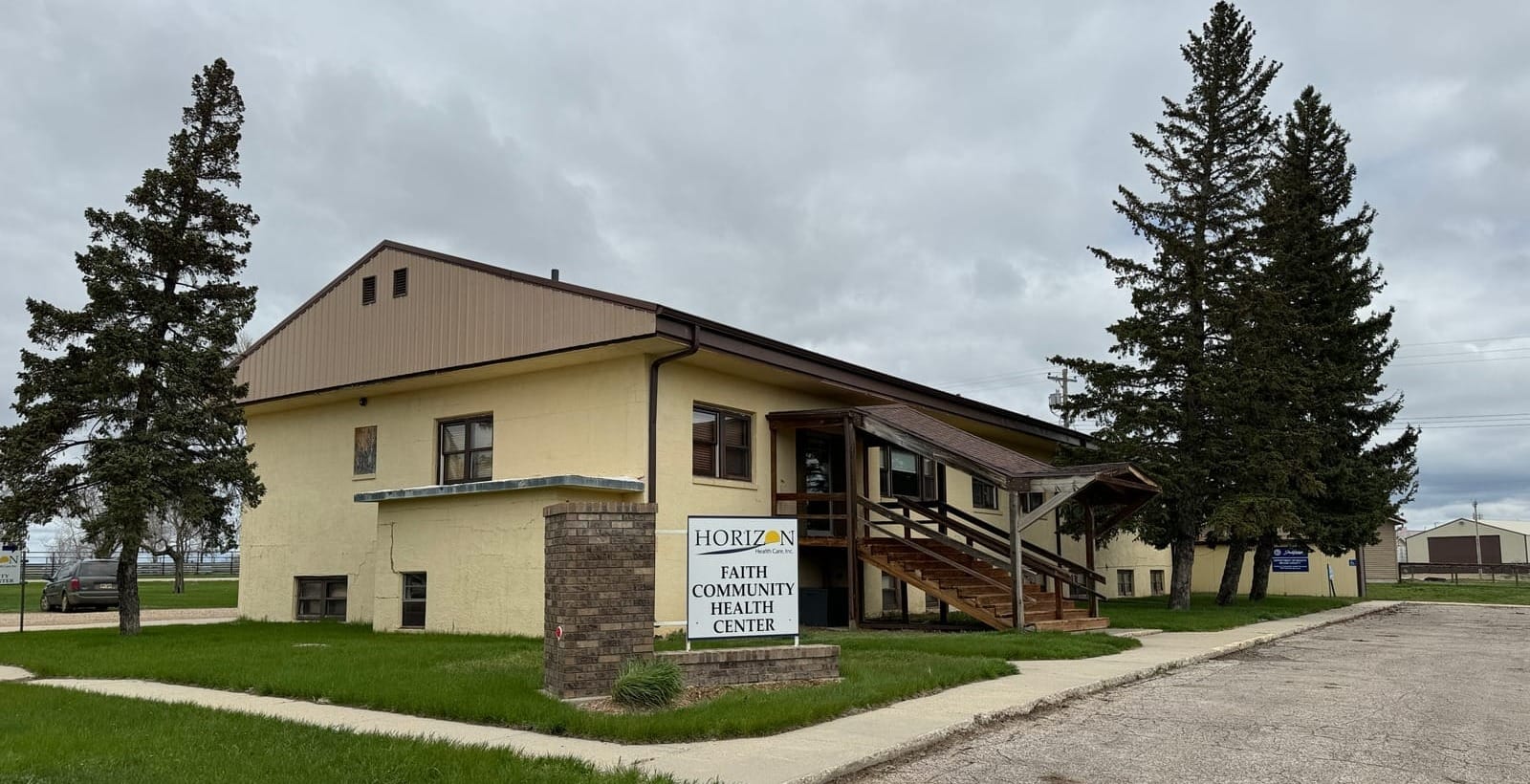Wade Erickson doesn't want to seem like an alarmist.
But Erickson, CEO of Horizon Health in South Dakota, has serious concerns about how the Medicaid cuts embedded in the giant taxation and budget law signed by President Donald Trump will affect the health of South Dakotans, especially in rural areas.
Horizon provides medical care to people across a 28,000 square-mile area of the state. Each year, about 26,000 patients are treated in 80,000 appointments at 27 Horizon Health clinics, dental offices and mental-health centers in South Dakota.
Details are still to come on the cuts to Medicaid, the health insurance program for low-income Americans. But early indications are that the law will cut federal aid to health care by $1 trillion over the next decade.
The nonpartisan Congressional Budget Office estimated that the law will remove 12 million Americans from enrollment in the Medicaid program, many due to new work requirements.
From Erickson's standpoint, that would impact rural health in two ways.
First, patients who lose Medicaid coverage and are not able to afford medical care from their own pockets will be more likely to delay preventive care or may avoid getting needed medical treatments altogether.
"If people are afraid to access health care because they can't afford to pay for it, or they stop taking care of their wellness and are no longer catching chronic diseases early to where they can be managed, there’s a very good possibility that it could lead to people being more sick, and also some more people dying before they would otherwise," Erickson told News Watch.
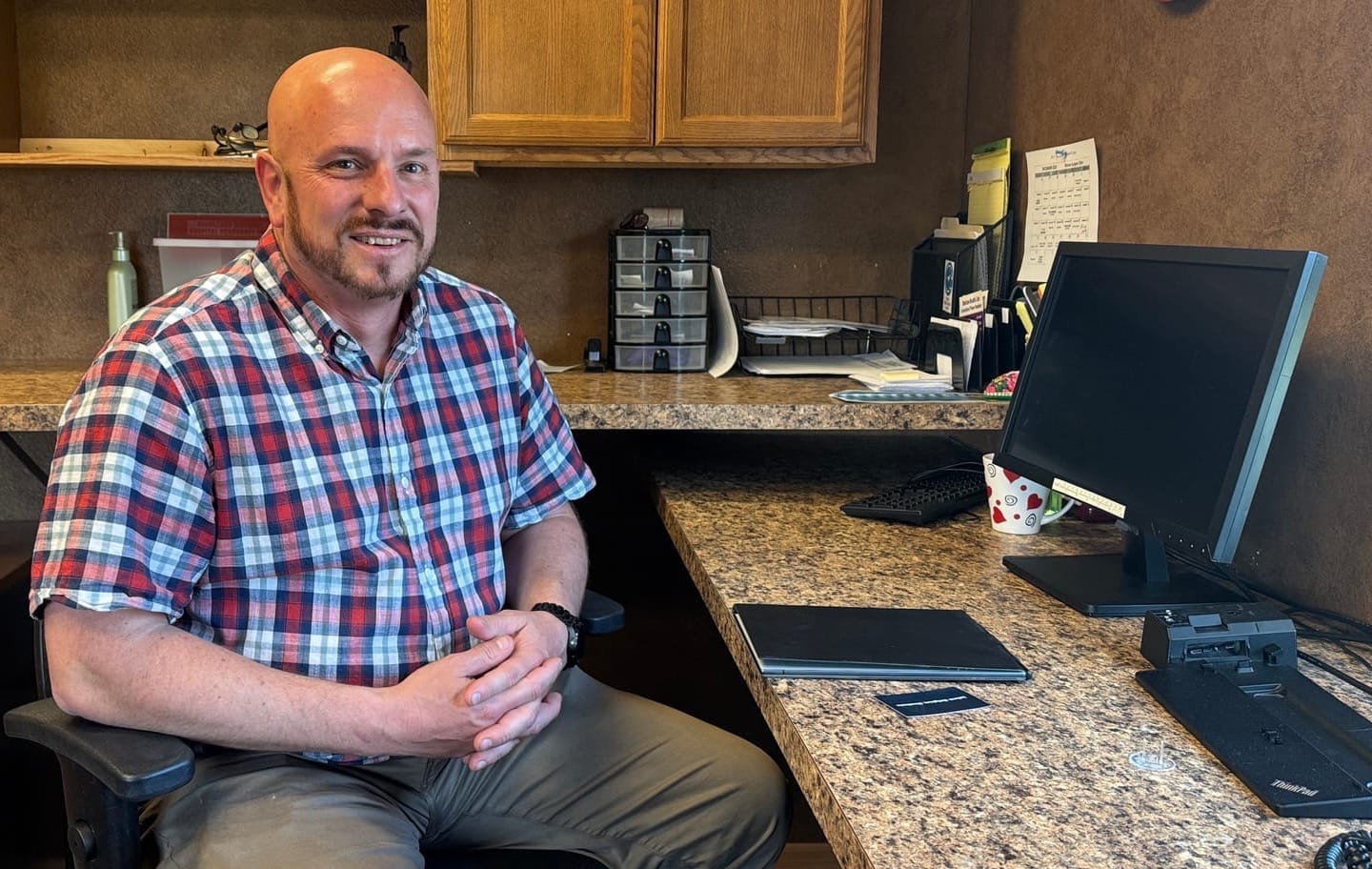
Secondly, health providers like Horizon, which already run on small or even negative profit margins on some procedures, will see less revenue and could be forced to reduce services.
About 65% of Horizon's annual budget is funded by the federal government, with roughly 20% coming from Medicaid, which sometimes does not cover the full cost of patient treatments and procedures. Other federal funding sources include Medicare and the annual payment made as part of the Federal Qualified Health Center program.
As a federally qualified center, Horizon cannot turn away any patients. If fewer people are covered by Medicaid, Horizon will have to ask them to pay on a sliding scale or simply provide unreimbursed coverage if the patients cannot afford to pay.
“Just because people lose coverage doesn't mean they stop getting sick or they should stop taking care of their wellness and chronic conditions,” Erickson said.
“That is super important, that we are able to continue to support that. But without insurance or without a payer source other than themselves, which honestly, people can't afford it if they're on Medicaid, so they’ll be uninsured," he added. "That will just lead to more uncompensated care and make it really difficult for us to maintain services in rural communities.”
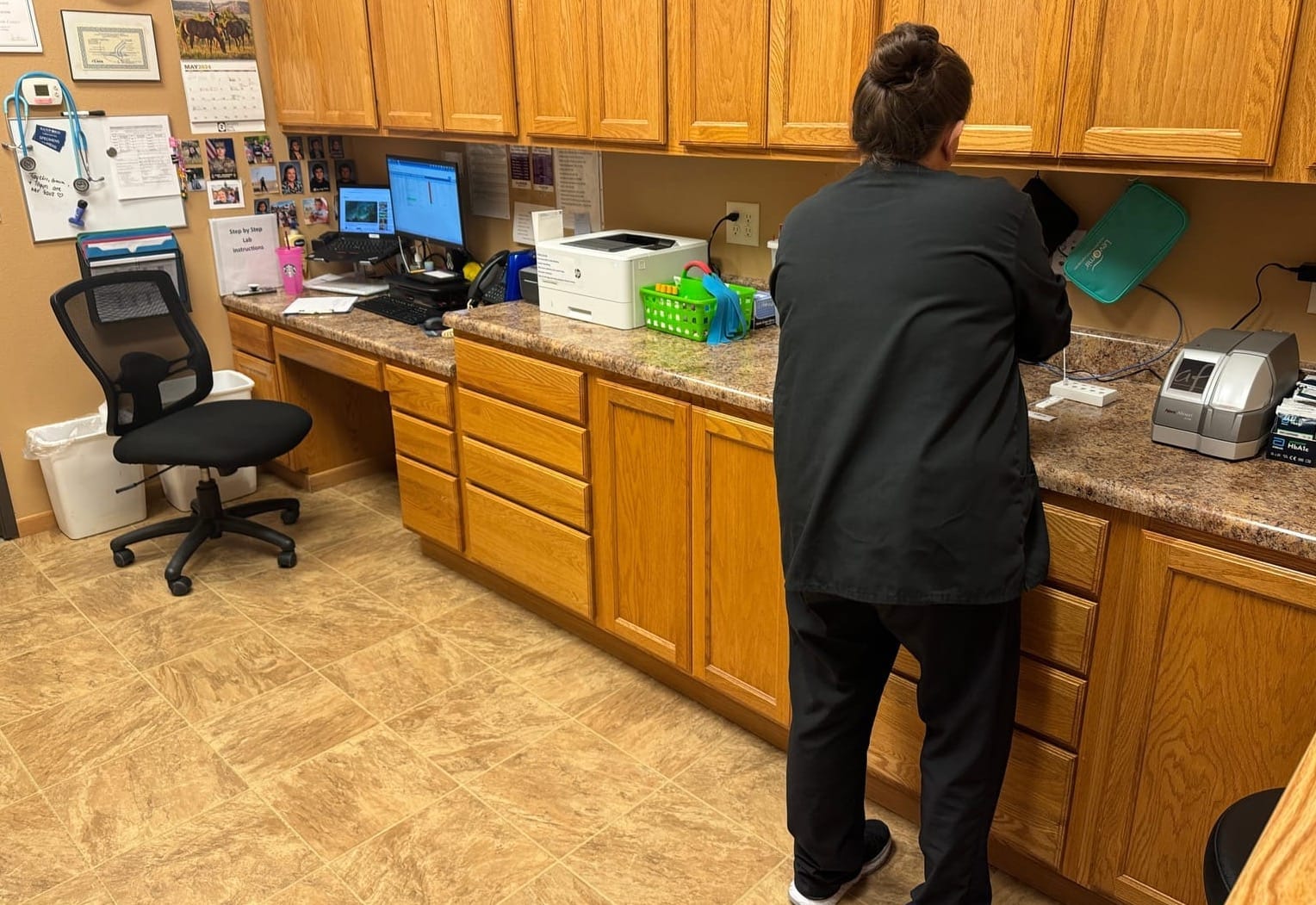
Erickson acknowledged that there are many unknowns about how the cuts to Medicaid will play out in the coming years. But he is concerned that reductions in coverage may put rural providers and patients into untenable positions.
"We already have patients who choose whether to get groceries or get their prescriptions, so it’s going to land on the most vulnerable people out there," he said. "And we have to figure out, how are we going to serve all these new patients who are uninsured?"
Law's goal is to cut fraud and waste
President Trump and Republican leaders in Congress have said the health care changes in the new budget bill will reduce fraud and waste and ensure that Medicaid is serving those it initially intended: pregnant women, people with disabilities and children.
Cuts in some programs were necessary in order to fund some of Trump's other priorities, such as increasing immigration enforcement, boosting defense and providing tax cuts.
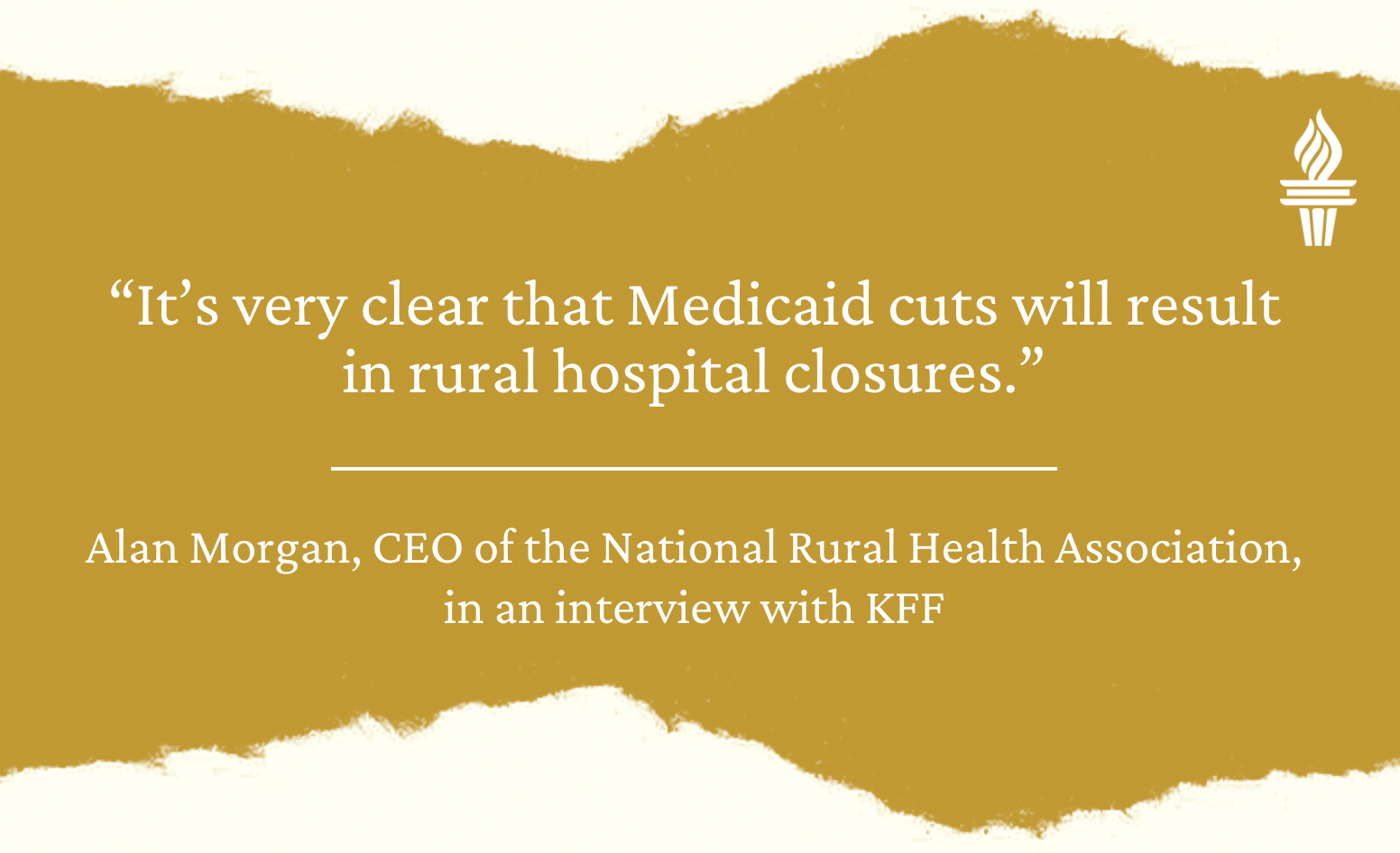
The bill includes a $50 billion new fund to help rural hospitals offset revenue losses. But the nonpartisan KFF research institute estimates Medicaid spending in rural areas will fall by $155 billion under the new legislation.
“It’s very clear that Medicaid cuts will result in rural hospital closures,” Alan Morgan, CEO of the National Rural Health Association, a nonprofit advocacy and research organization, told KFF in July.
A $1.65 billion program in SD
Medicaid in South Dakota provides medical, dental, vision and pharmaceutical insurance coverage for qualifying low-income adults and children.
The cost of the Medicaid program in South Dakota in calendar year 2024 was about $1.65 billion, according to data from the Department of Social Services, which administers the program.
DSS officials did not respond to an interview request from News Watch.
Medicaid enrollment and costs in South Dakota rose significantly in July 2023, when voter-approved expanded guidelines kicked in, and both metrics have continued to rise since then.
In June, about 144,300 people were enrolled in Medicaid in South Dakota, with 78,500 children and 65,800 adults covered by the insurance plan. The cost of the program was $155.5 million that month, with the state paying about 40% and the federal government paying around 60%.
While cuts to Medicaid will affect all health care providers across the state, including large health groups in bigger cities, rural providers and patients have fewer options to adapt to changes and as a result may see more acute impacts.
Long-term care industry worries but 1 positive
Providers in the long-term care industry in South Dakota are also trying to determine how the recent budget law will affect their ability to provide care or even remain financially viable, said Mark Deak, executive director of the South Dakota Health Care Association.
The association represents about 170 nursing homes, assisted-living and senior-care homes as well as about 90 vendors and suppliers to the long-term care industry in the state. Many of those facilities, particularly in rural areas, have experienced financial challenges in recent years, leading 10% of nursing homes to close during the early 2020s, Deak said.
While the budget bill does not contain direct cuts to long-term care funding, anticipated reductions in Medicaid funding could squeeze revenues for facilities that on average receive 54% of income from Medicaid enrollees, Deak said.
As a result, care facilities could be hit with revenue challenges, especially in rural areas where workforce is limited and costs can be higher, he said. Meanwhile, potential residents with limited financial resources could find it harder to obtain long-term care.
Join other South Dakotans and support statewide storytelling.
“Given how tight the margins are, and how tight the budget could get, it just ratchets up the level of anxiety,” Deak said. “Given the overall fiscal pressures, we’re just thinking about what the impacts could be.”
Another less-prominent piece of the legislation, Deak said, will shorten by a month the time period long-term care facilities have to process and be reimbursed for new residents, which also could make it less likely they will take in new low-income residents.
The law did include one big win for long-term care facilities.
It paused a federal staffing level requirement that Deak said would have forced facilities in South Dakota to hire 300 new nurses. That was an expensive and potentially impossible directive to meet given the lack of available workforce, he said.
Waiting and watching in Winner
Brian Williams, CEO of Winner Regional Health, said it’s too early to know how the Medicaid cuts in the federal budget bill will impact his facility and its patients. But he's staying abreast of funding developments to be prepared if bad news does arrive.
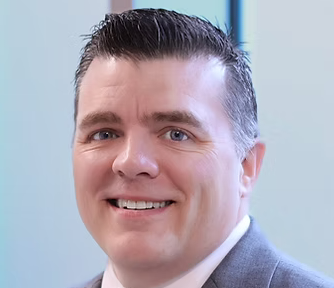
“We do not fully understand how these cuts may or not impact us. But we’re very concerned and we’re keeping a close eye on how this is going to be implemented,” Williams told News Watch. “It could have a negative impact on our ability to get reimbursement for a lot a services we provide.”
The small, independent health group that includes a hospital, clinic and long-term care facility in south-central South Dakota's Tripp County has been forced to make tough choices already this year due to revenue challenges.
In February, Winner Regional ended its birthing services, forcing expectant mothers to drive an hour or more to give birth with a doctor present.
Erickson, of Horizon Health Care, said he plans to contact members of Congress to urge them to modify or soften the cuts to Medicaid.
"That’s why we really have to tell our story of the impact of what it’s going to do to people across the country, and in our case, the people of South Dakota."
This story was produced by South Dakota News Watch, an independent, nonprofit organization. Read more stories and donate at sdnewswatch.org and sign up for an email to get stories when they're published. Contact Bart Pfankuch at bart.pfankuch@sdnewswatch.org

